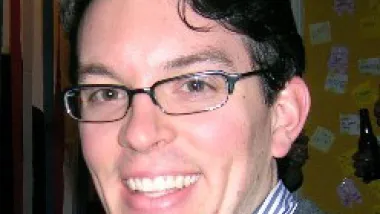The federal law setting nation transportation funding and policy, SAFETEA-LU, is set to expire on September 30, 2009. The huge bill has regulated everything from the New Starts transit program to thousands of pork-barrel transportation projects around the country. With unprecedented concern over global warming, a new president in November, and popular frustration with congestion on both transit and highways, there may be the opportunity for a major revision in federal policy. In this post I review some of the debate so far, and outline the proposals recently released by an independent commission.
The federal law setting nation transportation funding and policy, SAFETEA-LU, is set to expire on September 30, 2009. The huge bill has regulated everything from the New Starts transit program to thousands of pork-barrel transportation projects around the country. With unprecedented concern over global warming, a new president in November, and popular frustration with congestion on both transit and highways, there may be the opportunity for a major revision in federal policy. In this post I review some of the debate so far, and outline the proposals recently released by an independent commission.
With discussion starting in Washington I thought it was a good time to kick off conversation here on Planetizen.
Previously on the site, last fall Interchange contributor Josh Stephens critiqued SAFETEA-LU's name as "artless" and "obfuscating." He probably won't be much happier with the name I've heard tossed around for the new bill, GREEN TEA (no word on what it would stand for, precisely), or the name adopted by a group of transportation activists for their campaign "T4America." I hope he'll forgive the title of this post. Way back in 2004 a group of Bush's transportation advisors wrote an op-ed for this site describing their views. The arguments will come as no surprise to Planetizen readers: they argue for extensive new tolls, "weeding" out transit projects, and encouraging Bus Rapid Transit.
The area of transportation policy that has sparked the most discussion is congestion pricing. A Washington Post article describing the key movers behind the DOT's interest in congestion tolls sparked a variety of blog responses, and the issue has been hotly debated in the cities where it has been proposed.
Looking forward, the logical place to start the conversation is with the findings of a national commission charged under SAFETEA-LU to offer recommendations for the next transportation bill. I discussed some of the findings of the National Surface Transportation Policy and Revenue Study Commission in a recent post to my personal blog. Essentially, the group suggested a substantial increase in the Federal gas tax, anywhere from $.59 to $1.03 per gallon. The tax hasn't moved from 18.4 cents per gallon since 1993, and its dwindling revenue means the highway trust fund will run out of money without new sources of revenue. On the policy side, the commission recommends accelerating approval of new projects by streamlining the environmental review process, re-organizing all federal transportation programs into ten topical programs, and creating a new independent public commission to oversee a national transportation plan.
Collectively these recommendations could mean substantial changes for urban planners. The new funds and accelerated approvals could mean substantial investment in our urban areas. The commission suggests much higher federal matching ratios for mass transit projects than they currently experience, meaning transit and highways would be funded in similar ways. Most provocatively, I like their suggestion of an independent commission to help de-politicize the funding process.
How should SAFETEA-LU be improved? Is there an opportunity for a paradigm shift, or is the new bill destined to be another inefficient boondoggle packed with bridges to nowhere, Byzantine rules for transit, and lavish funding for highways?

Planetizen Federal Action Tracker
A weekly monitor of how Trump’s orders and actions are impacting planners and planning in America.

Chicago’s Ghost Rails
Just beneath the surface of the modern city lie the remnants of its expansive early 20th-century streetcar system.

Amtrak Cutting Jobs, Funding to High-Speed Rail
The agency plans to cut 10 percent of its workforce and has confirmed it will not fund new high-speed rail projects.

Ohio Forces Data Centers to Prepay for Power
Utilities are calling on states to hold data center operators responsible for new energy demands to prevent leaving consumers on the hook for their bills.

MARTA CEO Steps Down Amid Citizenship Concerns
MARTA’s board announced Thursday that its chief, who is from Canada, is resigning due to questions about his immigration status.

Silicon Valley ‘Bike Superhighway’ Awarded $14M State Grant
A Caltrans grant brings the 10-mile Central Bikeway project connecting Santa Clara and East San Jose closer to fruition.
Urban Design for Planners 1: Software Tools
This six-course series explores essential urban design concepts using open source software and equips planners with the tools they need to participate fully in the urban design process.
Planning for Universal Design
Learn the tools for implementing Universal Design in planning regulations.
Caltrans
City of Fort Worth
Mpact (founded as Rail~Volution)
City of Camden Redevelopment Agency
City of Astoria
City of Portland
City of Laramie



























